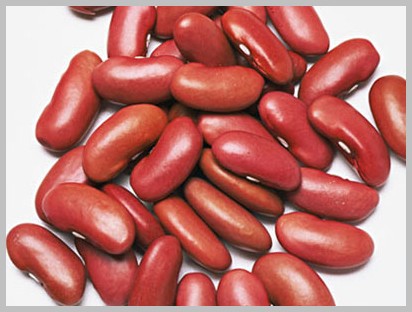The ketogenic diet is a carbohydrate poor but fatty diet. The ketogenic diet offers many benefits to your health. It lowers your blood sugar and insulin levels and causes you to switch metabolism from burning carbohydrates to burning fat. Several 20 studies show that you can lose weight with the ketogenic diet and, in addition, improve your health. The ketogenic diet could even contribute to diabetes, cancer, epilepsy and Alzheimer's disease.
What is a ketogenic diet?
The ketogenic diet is a carbohydrate and fatty diet, which has something away from the Atkins diet or the more famous carbohydrate diets. But ........... where you reduce the intake of carbohydrates drastically, you will replace that with fat. Yes really? Yes, really, that seems a bit scary, but it's not!
If you reduce your carbohydrate intake drastically, your body is put in a metabolic state, also called ketosis (hence the name ketogenic diet). If your body is in the position of ketosis, your body is able to burn extremely efficient fat and convert it into energy. Also, the fat in your liver is converted to ketones, which provide extra energy to your brain. After a few days or weeks your body and brain have become very efficient in converting fat and ketones into energy instead of carbohydrates.
The keto diet can cause a huge reduction in your blood sugar and insulin levels.
There are several variations in the ketogenic diet:
- Standard ketogenic diet: low in carbohydrates (5%), moderate in protein (20%) and high in fat (75%)
- Cyclic ketogenic diet: The name says it already, there are periods of barely used carbohydrates until periods of more carbohydrates. For example, 5 ketogenic days followed by 2 carbohydrate-rich days.
- Targeted ketogenic diet: In this variant you can add carbohydrates around training.
- Protein-rich ketogenic diet: This is comparable to a standard ketogenic diet, but contains more protein. The ratio is often 60% fat, 35% protein and 5% carbohydrates.
Ketogenic diet and lose weight quickly
A ketogenic diet is an effective way to lose weight. Several studies show that the ketogenic diet works much better in weight loss than a low fat diet. Important to this diet is that it is very filling. This means that you do not need to count any calories or keep food because you do not get hungry with this diet.
There have been several studies on the effects of the ketogenic diet. One study even found that ketogen diet participants lost 2.2 times more weight than people on a low-calorie and low-fat diet.
Why is a ketogenic diet so superior to a low fat diet? One reason is the increased protein intake that has several benefits. But also the increased ketones, decreased blood sugar levels and increased insulin sensitivity play an important role.
What do you eat in this diet?
The basis of your diet should contain the following components:
- Meat: red lettuce, ham, chicken and turkey
- Oily fish: salmon, trout, tuna and mackerel
- Eggs: Look at grass eggs or surround-3-rich eggs
- Butter and cream: look here for grass feed
- Cheese: uncooked cheese such as cheddar, goat cheese, cream cheese or mozzarella
- Nuts and seeds: almonds, walnuts, linseed, pumpkin seeds, chiazades, etc.
- Healthy oils: mainly extra virgin olive oil, coconut oil and avocado oil
- Avocados: whole avocados or freshly made guacamole
- Carbohydrated Vegetables: Most Green Vegetables, Tomatoes, Onions, Peppers, etc.
- Spices: salt, pepper and various herbs and spices are allowed
In short, you leave carbohydrate rich food or at least drastically reduce you. The following diet should reduce you drastically or do not even take it all during the diet:
- Sugar-fed food: soda, fruit juice, smoothies, cake, ice cream, candy etc
- Cereals and starch: wheat-based products, rice, pasta, cereals etc.
- Fruit: All fruits except small portions of berries or strawberries
- Beans and legumes: peas, beans, lentils, chickpeas etc.
- Carrots and tubers: potatoes, sweet potatoes, carrots, parsnip, zucchini, pumpkin etc.
- Low-fat dietary products: These are often highly processed and carbohydrate rich
- Herbs (-pasta and -mixes) and sauces: These often contain sugar and unhealthy fats
- Unhealthy fats: Reduce intake of processed vegetable oils, mayonnaise etc.
- Alcohol: Because of the carbohydrates
- Sugar-free diet foods: These often have a negative effect on ketone levels and are usually heavily processed.






0 comments